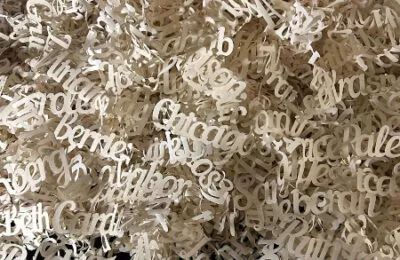They stood side by side, the liberated and the liberators. The formal, brass-decked young uniformed military men and women from Colorado’s National Guard — from the same 157th infantry that, 70 years ago, were among the liberators of the Dachau concentration camp — and the elderly, tattered yet strong and proud Holocaust survivors. One held an accordion in his hands as part of the Colorado Hebrew Chorale. It was the 70th anniversary of the end of WW II, an emotional Holocaust commemoration at the Hebrew Educational Alliance.
“Zachor, ve-lo tishkach; remember, do not forget,” urged Rabbi Bruce Dollin.
Survivors spoke. Jack Welner: “The ghetto was liquidated and we were put on the trains to Auschwitz. After a while the train stopped and the doors slid open . . . and it was like the doors to hell had opened . . . immediately the screams started: ‘Raus!’ Right! Left! That’s when I was ripped from my mother.”
And Leon Tulper, a WW II liberator. “It was April 13 . . . remember we were all of 18, 19 . . . we didn’t know how to take what happened. It looked as though we came upon hell. We just sat there crying . . . GIs literally sick, vomiting . . . we couldn’t help but cry, it was impossible not to. Then in Morse code I quickly communicated: There is something crazy here, there is no way to explain it. There is a pile of skeleton people here . . . better send jeeps . . . better send help.”
Perhaps they stood on opposite sides of the cursed and infamous barbed wire, but the liberated and the liberator — their life stories are forever braided in this crucible of time we call the Holocaust.
Pre-war Yiddish songs are sung. Conducted by Carol Ward, the Colorado Hebrew Chorale fills the room with a beautiful melancholy “Vu Ahin Zol Ich Geyn, Where Shall I Go?” Stepping up in front of the chorale, the accordion in his hands, Oscar Sladek, child survivor, shares: “This is a song from my childhood. When persecution started in Slovakia, the government was telling us to leave, we would all have left, but the problem was, where to go? None of the countries would take us in. This song commemorates that.”
And with that, his accordion bellowed the music of “Vu Ahin Zol Ich Geyn.”
“What is there to say?” commented Major General H. Michael Edwards, adjutant general, Colorado National Guard. So, in the words of his predecessors, he went on to share some eyewitness to history impression.
Just a couple:
Gen. Felix Sparks: “We weren’t prepared for the encounter. We were veterans, death was commonplace. Yet we were sickened, it was beyond the human mind to see such a scene. By that time I was a battle hardened veteran, but I was not prepared for what I saw . . . even after 500 days of continuous battle.”
John Lee: “You tried to hold yourself together, but then you looked at your buddy . . . completely in tears…”
Seventy years later, Major Gen. Edwards still feels overwhelmed by the legacy of his battalion. Last year, he was at a conference in Germany when he realized he had just enough extra time before his departure. “I’m going to Dachau,” he told himself. And he did.
He said to all of us sitting there this past Sunday: “The uniformed members in this room, we are your friends, part of your heritage, and part of the liberators.” With determination, he continued: “We must continue to pray for courageous leadership! That Israel remain strong! And that America remains Israel’s strongest ally.”
Then, almost as if he were thinking aloud, trying to come to terms with this dark chapter in our recent history, he continued: “I think America was so concerned about another war . . . with WW I when so many nations lost so many soldiers, and so the feeling was perhaps to avoid war at all costs, AT ALL COSTS. We must pray for courageous leadership, no matter the cost. Militarily we could never ever EVER let something like this happen. Now that we know the cost, we must, must act.”
He repeated: “Thank you for including the National Guard, because we truly are your friends, your partners and your family members.”
There was more Yiddish singing, the defiant “Zog Nit Keyn Mol,” the hymn of the partisans, composed in 1943, a response to the Warsaw Ghetto uprising. And Cantor Zachary Kutner’s “Ani Hagever, I Am the Man” — the central, pained character of chapter three of Lamentations, the eyewitness to the ancient destruction of Jerusalem. This is how Cantor Kutner defines himself in context of the Holocaust. His pain shimmered with every note of his shattering Kel Maleh prayer.
The program ended inspirationally. We were all encircled by a stirring and ethereal rendition of “Jerusalem of Gold.”
And, of course, the Kaddish.
Two days later I am back at the HEA for a moving Israel Memorial Day Yom Hazikaron commemoration organized by JEWISHcolorado, at which Michal Peleg-Uziyahu crystallizes so much in the following simple, profound sentence: “Last week we commemorated Yom Hashoah [Holocaust Memorial Day] because we had no State of Israel. Tonight we commemorate Yom Hazikaron for the fallen, because we have a State of Israel.”
Copyright © 2015 by the Intermountain Jewish News












